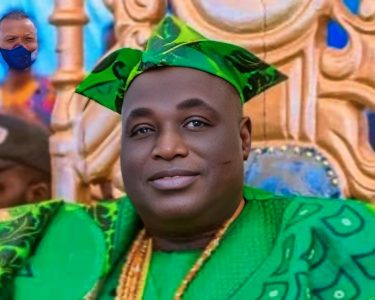THE STORY OF ADÉGBÖRÒs
by Adewale Aloko:
In those days, ADEGBOROs left Ibadan for Lagos in search of greener pasture. He chose to be carrying loads (Alabaru) on his head at Oyingbo market to earn a living.
Few years after, he bought a cart from his savings and this eased the pain of carrying loads on his head for commercial purposes.
The Cart also increased his income and he was able to acquire 6 more of its kind which he rented out to others.
Exactly 8 years in this cart pushing business, Adegboro bought a van which many called BOLEKAJA and learning how to drive, he handled the business by himself. 4 years into the Bolekaja business, Adegboro had been a proud owner of 6 Vans.
Being a bonafide Ibadan son, (omo bibi ilu Ibadan) ADEGBORO built a magnificent building at OJA OBA where the Olubadan Palace was situated when it was time to put a roof on his head.
Many people at this period approached Adegboro to show them the secret behind his success. He simply asked them if they could carry loads on their heads in the market to earn income (alabaru)? And their response had always been “NEVER”.
He too would spontaneously say “ENI TI O LE SE ALABARU L’OYINGBO, KO LE SE BI ADEGBORO L’OJA OBA” – this is a replica of the adage also in Yoruba land that says; “ÌSASÙN tabi IKOKO TI YIO J’ATA (OBE), IDI RE A KOKO GBONA”. (A pot that wants to consume a palatable soup must have its bottom burnt or heated with fire first).
In Life, to endure is to achieve. No short cut is sustainable. Wealth is built over time in a small bit but in a persistent way!!!!!!
Our children must learn from this true life story. They must shun the get-rich-quick syndrome that’s affecting most youths today, many have entered into traps of human traffickers, sold into sex slaves, drugs, prostitution, and what have you, in desperation for get-rich-quick green pastures. Today, many are still being auctioned for sale in LIBYA.
Sit your children down and teach them the meaning of the popular poem by J.F. Odunjo:
ISE NI OOGUN ISE (Work is the antidote for poverty)
Ise l’ogun ise
(Work is the antidote for poverty)
Mura s’ise ore mi
(Work hard, my friend)
Ise la fi n’deni giga
(Work/Labour is the major tool for elevation)
Bi a ko ba reni feyin ti
(If we do not have anyone to lean on)
Bi ole la’nri
(We appear indolent)
Bi a ko ba reni gbekele
(If we do not have anyone to support us)
A tera mo’se eni
(We simply work harder)
Iya re le lowo lowo
(Your mother might be rich)
Baba re le lesin lekan
(Your father may have a stable full of horses)
Bi o ba gbo’ju lewon
(If you rely on them)
O te tan ni mo so fun o
(You are close to shame and disgrace, I tell you)
Ohun ti a ko ba ji’ya fun,
(Whatever one does not work hard to earn)
Se kii le pe lowo;
(Usually does not last)
Ohun ti a ba fara sise fun,
(Whatever gain one seriously labours for)
Nii pe lowo eni.
(Usually lasts with one)
Apa lara
(Your arm is you relative )
Egunpa niyekan
(your elbow is your sibling)
B’aye ba n’fe o loni
(If the world loves you today)
Bi o ba lowo lowo
(If you have money)
Aye a ma fe o lola
(The world will still love you tomorrow)
Tabi ki o wa ni’po atata
(Or if you are in a prestigious position)
Aye a ma ye o si terin-terin
(The world will celebrate you with smiles)
Je k’o de’ni tin rago
(Wait till you become poor)
Aye a ma yinmu si o
(The world will grimace at you)
Eko si’nso ni d’oga
(Education also elevates one to higher positions)
Mura ki o ko dara dara
(Ensure that you acquire it well)
Bi o si r’opo eniyan
(And if you see a lot of people)
Ti won f’eko s’erin rinrin
(Making mockery of education with laughter)
Dakun ma f’ara we won
(Please do not emulate or keep their company)
Iya n’bo fun’omo ti ko gbon
(Suffering beckons for the unwise child)
Ekun n’be fun’omo to nsa kiri
(Tears are due for the truant child)
Ma f’owuro sere ore mi
(Do not toy with your early years)
Mura si’se ojo’nlo
(Work hard; time waits for no one).
Half a word is enough for the wise.




